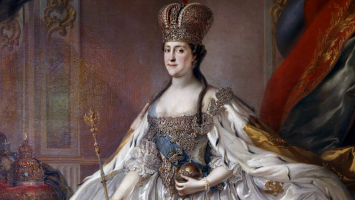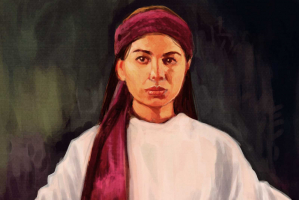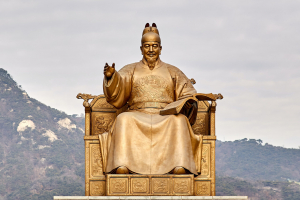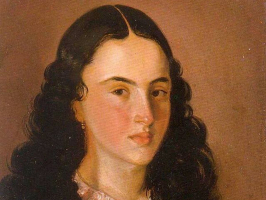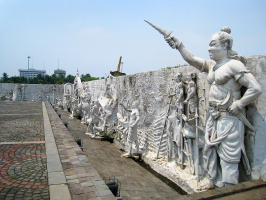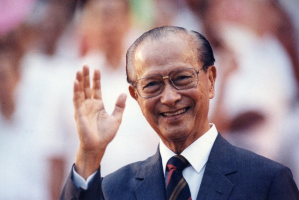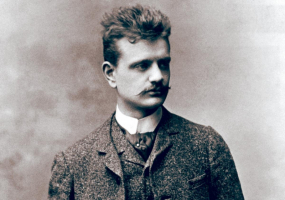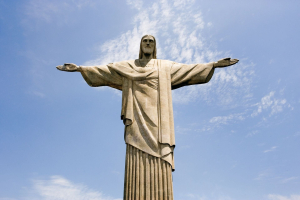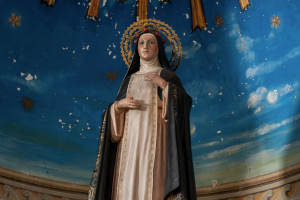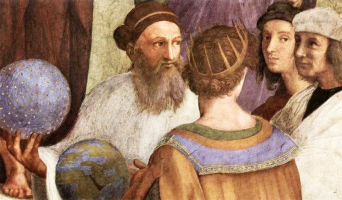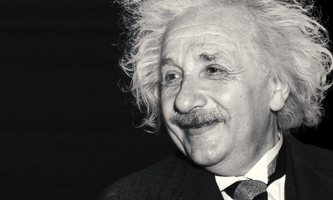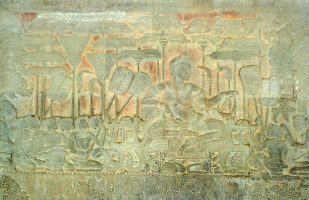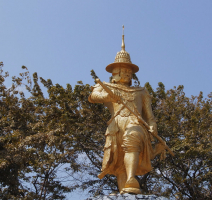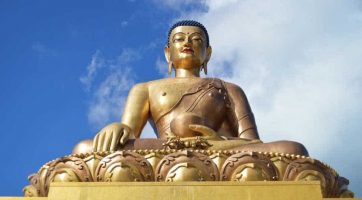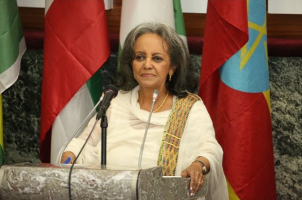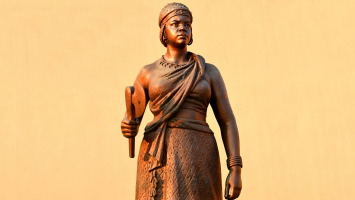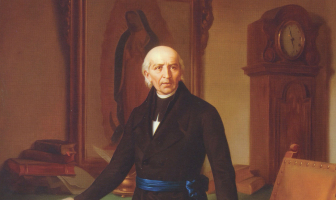Top 6 Most Important Historical Figures In Bangladesh
When you mention Bangladesh, your mind will wander to the poignant verses of Michael Madhusudan Dutta or to the soulful melodies of Kazi Nazrul Islam. ... read more...Bangladesh has always been a universe of courageous, exemplary, and exceptionally talented Bengalis. Unfortunately, the country has frequently been dismissed as a third-world country struggling to find its place in the world. To be honest, despite its relatively short history, Bangladesh has managed to stamp its greatness, and how? Bangladesh, home to the Royal Bengal Tiger and the world's largest mangrove forest, has many eminent men and women. Explore their lives in their timeline, as well as the trivia and facts covered in their biographies in the list of the most important historical figures in Bangladesh.
-
Sheikh Mujibur Rahman (17 March 1920 - 15 August 1975), often shortened as Sheikh Mujib or Mujib and also known as Bangabandhu, was a Bangladeshi politician, statesman, and Founding Father of Bangladesh who served as the country's first President and later Prime Minister from April 1971 until his assassination in August 1975. Mujib is credited with successfully leading the campaign for Bangladesh's independence from Pakistan. In Bangladesh, he is revered with the honorific title "Bangabandhu" (Bôngobondhu, "Friend of Bengal"), which is used around the world. He was a founding member and eventual leader of Pakistan's Awami League, which was founded in 1949 as an East Pakistan-based political party. Mujib is regarded as a pivotal figure in East Pakistan's efforts to gain political autonomy, as well as the driving force behind the Bangladesh Liberation Movement and the Bangladesh Liberation War in 1971. As a result, he is known as Bangladesh's "Jatir Janak" or "Jatir Pita" (Jatir Jônok or Jatir Pita, both meaning "Father of the Nation"). Sheikh Hasina, his daughter, is the current leader of the Awami League and the Prime Minister of Bangladesh.
Mujib, who was an early supporter of democracy and socialism, rose through the ranks of the Awami League and East Pakistani politics as a charismatic and forceful orator. He rose to prominence for his opposition to ethnic and institutional discrimination against Bengalis in Pakistan, who made up the majority of the state's population. During the height of sectional tensions, he outlined a six-point autonomy plan and was imprisoned for treason by Field Marshal Ayub Khan's regime. Mujib led the Awami League to victory in Pakistan's first democratic election in 1970. Despite gaining a majority, the ruling military junta did not invite the League to form a government. As civil disobedience erupted across East Pakistan, Mujib indirectly declared Bangladesh's independence in a landmark speech on March 7, 1971. On March 26, 1971, the Pakistan Army launched Operation Searchlight in response to the mass protests, in which Prime Minister-elect Mujib was arrested and flown to solitary confinement in West Pakistan, while Bengali civilians, students, intellectuals, politicians, and military defectors were murdered as part of the 1971 Bangladesh genocide. During Mujib's absence, many Bengalis joined the Mukti Bahini, which defeated the Pakistan Armed Forces during the Bangladesh Liberation War with the assistance of the Indian Armed Forces. Mujib was released from Pakistani custody following Bangladesh's independence due to international pressure and returned to Dhaka in January 1972 after a brief visit to Britain and India.
Mujib was elected Prime Minister of Bangladesh under the new country's parliamentary system. He tasked the provisional parliament with writing a new constitution proclaiming the four fundamental principles of "nationalism, secularism, democracy, and socialism," which reflect his Mujibism political views. In the country's first general election in 1973, the Awami League received a massive mandate. Mujib, on the other hand, had to deal with rampant unemployment, poverty, and corruption, as well as the 1974 Bangladesh famine. The government was chastised for denying indigenous minorities constitutional recognition and for human rights violations committed by its security forces, particularly the National Defence Force or Jatiya Rakkhi Bahini paramilitary. Mujib instituted one-party socialist rule in January 1975, amid rising political agitation. Six months later, he and the majority of his family were assassinated during a coup by renegade army officers. Following that, a martial law government was established. Mujib was voted the Greatest Bengali of All Time in a BBC poll in 2004. He is also remembered as one of the most important historical figures in Bangladesh.
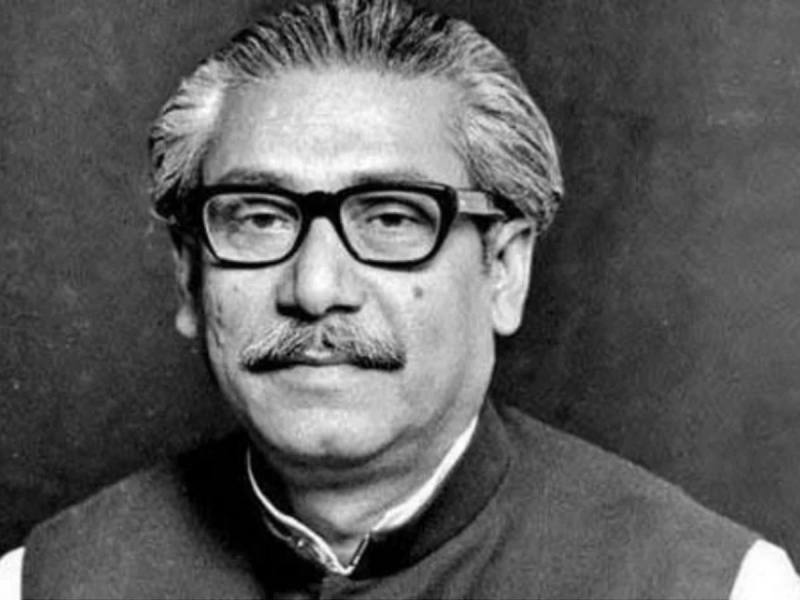
indiatimes.com 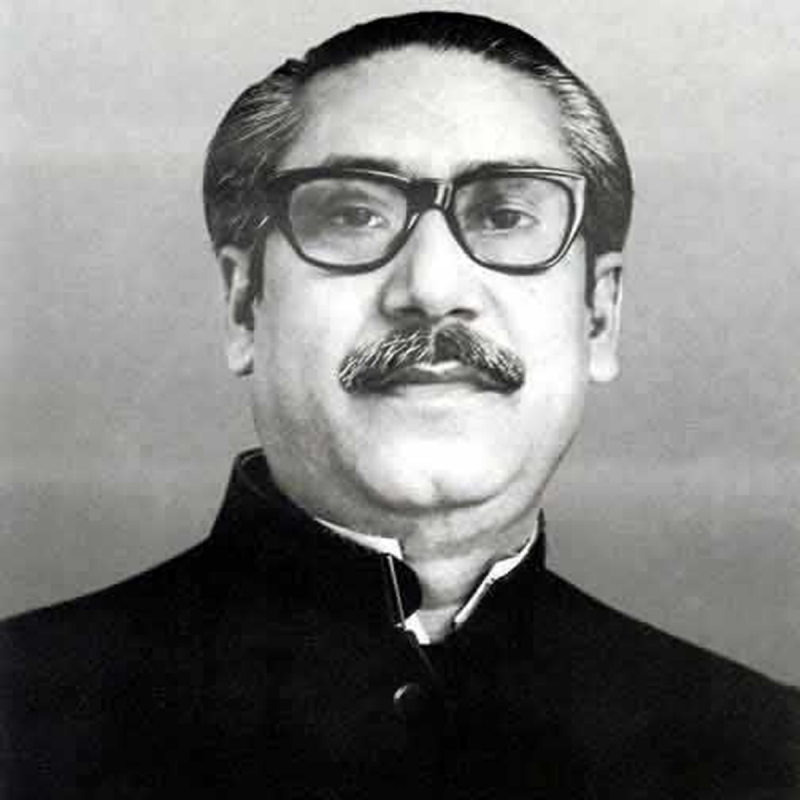
imdb.com -
Fazlur Rahman Khan (3 April 1929 - 27 March 1982) was a Bangladeshi-American structural engineer and architect who pioneered important skyscraper structural systems. Known as the "Father of Tubular Designs" for High-Rise Buildings, Khan was also a computer-aided design pioneer (CAD). He designed the Sears Tower, now known as the Willis Tower, which was the tallest building in the world from 1973 to 1998, as well as the 100-story John Hancock Center. He is among the most important historical figures in Bangladesh.
Khan, a partner at the Chicago firm Skidmore, Owings & Merrill, ushered in a renaissance in skyscraper construction during the second half of the twentieth century more than any other individual. For his innovative use of structural systems that remain fundamental to modern skyscraper design and construction, he has been dubbed the "Einstein of structural engineering" and the "Greatest Structural Engineer of the 20th Century." The Council on Tall Buildings and Urban Habitat created the Fazlur Khan Lifetime Achievement Medal as one of their CTBUH Skyscraper Awards in his honor.
Despite being best known for skyscrapers, Khan was also an active designer of other types of structures, such as the Hajj airport terminal, the McMath-Pierce solar telescope, and several stadium structures.
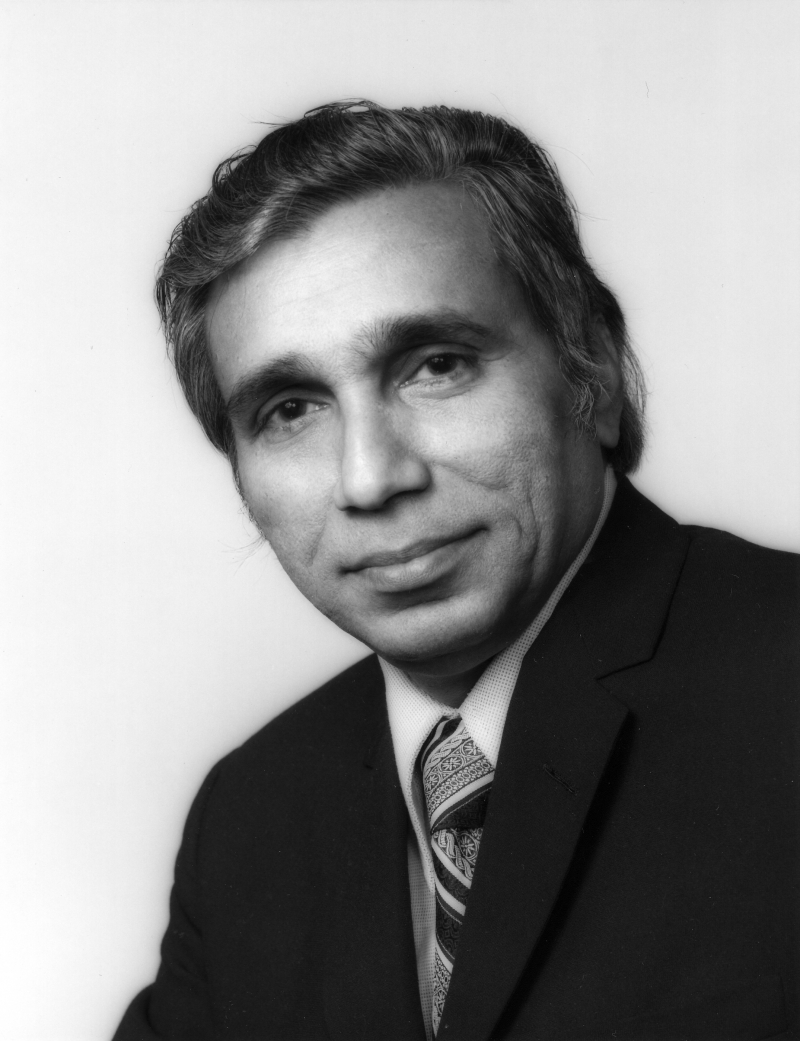
drfazlurrkhan.com 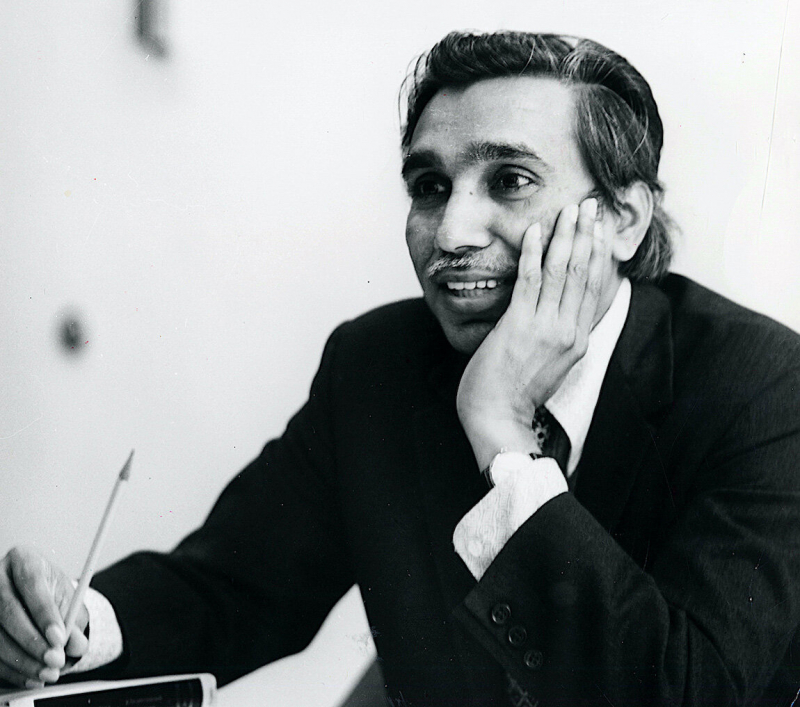
frkdocumentary.com -
Kazi Nazrul Islam (26 May 1899 - 29 August 1976) was a Bengali poet, writer, and musician who served as Bangladesh's national poet. Nazrul is widely regarded as one of Bengali literature's greatest poets. Nazrul, as he was popularly known, wrote a large body of poetry, music, messages, novels, stories, and other works on topics such as equality, justice, anti-imperialism, humanity, rebellion against oppression, and religious devotion. Nazrul's activism for political and social justice, as well as his poem "Bidrohī," which means "the rebel" in Bengali, earned him the title "Bidrohī Kôbi" (Rebel Poet). His compositions are part of the Nazrul Gīti avant-garde music genre (Music of Nazrul).
Born into a Bengali Muslim Kazi family from the Burdwan district of Bengal Presidency (now West Bengal, India), Nazrul Islam received religious education and worked as a muezzin at a local mosque as a young man. While working with the rural theatrical group Leṭor Dôl, he learned about poetry, drama, and literature. Leṭo is a folk song genre of West Bengal that is typically performed by the region's Muslim community. In 1917, he joined the British Indian Army and was stationed in Karachi. After the war, Nazrul established himself as a journalist in Calcutta. Through his famous poetic works such as "Bidrohī " ('The Rebel') and "Bhangar Gan" ('The Song of Destruction'), as well as his publication Dhūmketu ('The Comet,' he criticized the British Raj and called for revolution. Because of his nationalist activism in the Indian independence movement, he was frequently imprisoned by colonial British authorities. While imprisoned, Nazrul wrote the "Rajbôndīr Jôbanbôndī " ('Deposition of a Political Prisoner'). During the Bangladesh Liberation War, his writings inspired many Bengalis in East Pakistan.
Nazrul's writings addressed issues such as liberty, humanity, love, and revolution. He was against all forms of bigotry and fundamentalism, including religious, caste, and gender-based bigotry. Nazrul wrote short stories, novels, and essays, but his songs and poems are his most famous works. He popularized Bengali-language ghazal songs. He is also known for using Arabic, Persian, and Urdu words extensively in his works.
Nazrul wrote and composed music for nearly 4,000 songs (many of which were released on HMV and gramophone records), which became known as Nazrul Gti. At the age of 43, he began to lose his voice and memory due to an unknown disease. Pick's disease, a rare incurable neurodegenerative disease, was diagnosed by a medical team in Vienna. It deteriorated Nazrul's health and forced him to live in isolation. He was also admitted to a psychiatric hospital in Ranchi (Jharkhand) for many years. Nazrul's family traveled to Bangladesh at the invitation of the government and settled in Dhaka in 1972. He passed away four years later, on August 29, 1976.
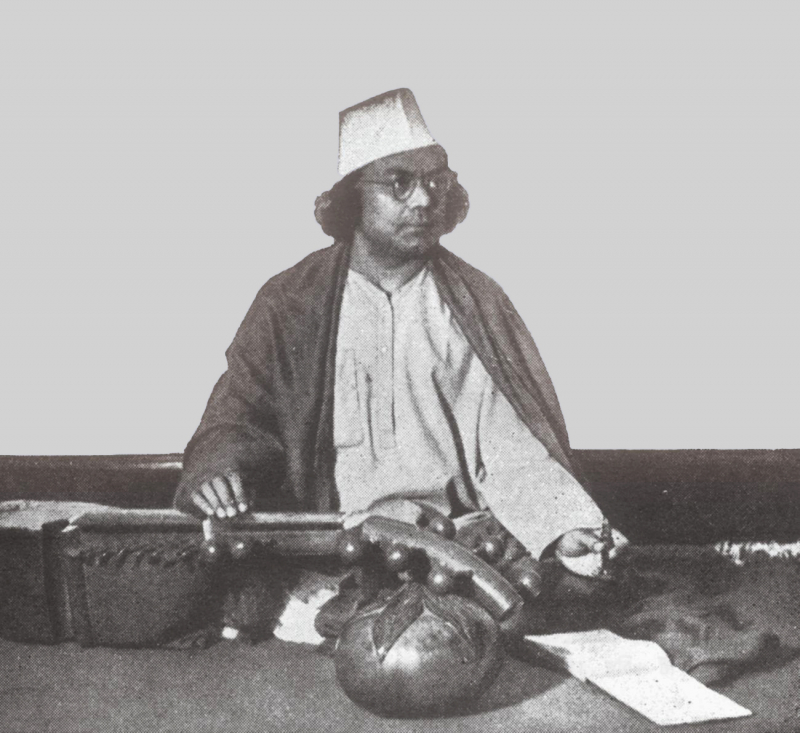
commons.wikimedia.org 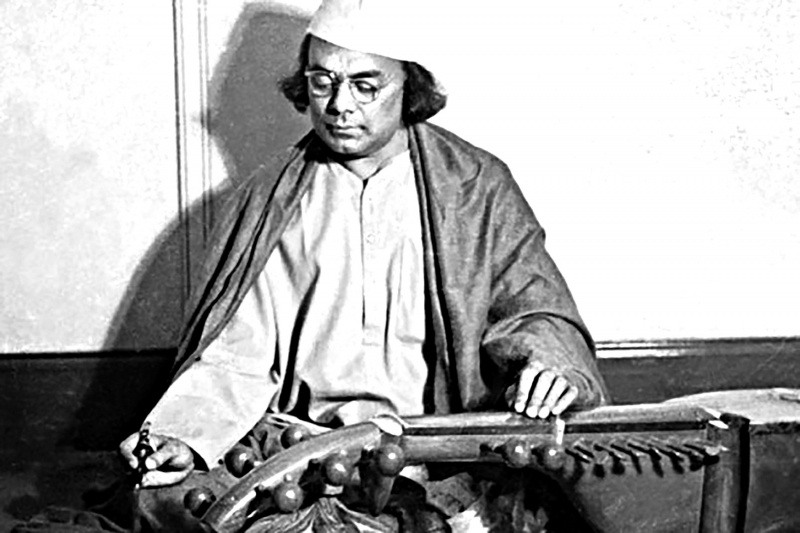
thedailystar.net -
Ziaur Rahman (January 19, 1936 - May 30, 1981) was a Bangladeshi military officer and politician who served as the country's President from 1977 to 1981. He is among the most important historical figures in Bangladesh. He was assassinated on May 30, 1981, in Chittagong, during an army coup d'état.
During the country's independence war from Pakistan in 1971, Rahman was a Bangladesh Forces Commander of BDF Sector BDF Sector 1 initially, and from June as BDF Commander of BDF Sector 11 of the Bangladesh Forces and the Brigade Commander of Z Force from mid-July. On March 27, he broadcast the Bangladesh Declaration of Independence from Chittagong's Kalurghat radio station. Rahman rose through the ranks of the Bangladesh Army, serving as a brigade commander, deputy chief of staff, and chief of staff. His rise to power was the result of a conspiracy that began with the assassination of Bangladesh's founding president, Sheikh Mujibur Rahman, in a military coup d'état, followed by a coup and counter-revolt within the military to seize control of the country. Under the Mushtaq government's martial law, Ziaur Rahman gained de facto power as the head of the government. In 1977, he was elected President.
Rahman established the Bangladesh Nationalist Party as president in 1978. (popularly known by its abbreviation BNP). He restored multi-party politics, press freedom, free speech, free markets, and accountability. He started mass irrigation and food production programs, as well as social programs to improve people's lives. His government spearheaded efforts to form a South Asian regional group, which later became SAARC in 1985. He improved Bangladesh's relations with the West and China while breaking with Sheikh Mujibur Rahman's close alliance with India. Domestically, Rahman faced as many as twenty-one coup attempts, for which trials were held, and many soldiers and officers of the Bangladesh Armed Forces were executed, the majority of whom were accused of biased and false trials. He was chastised for enacting the Indemnity Act and lifting the prohibition on religion-based political parties.
Rahman received two gallantry awards for his service in two South Asian wars. Hilal-i-Jurat for his contributions during the Indo-Pak War in 1965, and Bir Uttom for his contributions during the Bangladesh Independence War in 1971. According to Anthony Mascarenhas' 1986 book Bangladesh: A Legacy of Blood, Rahman retired from the Bangladesh Army as a Lieutenant General on April 28, 1978.
The BNP, the political party he founded in 1978, rose to become one of Bangladesh's top five political parties. His wife, former Prime Minister Khaleda Zia, is the current chairperson of the BNP.
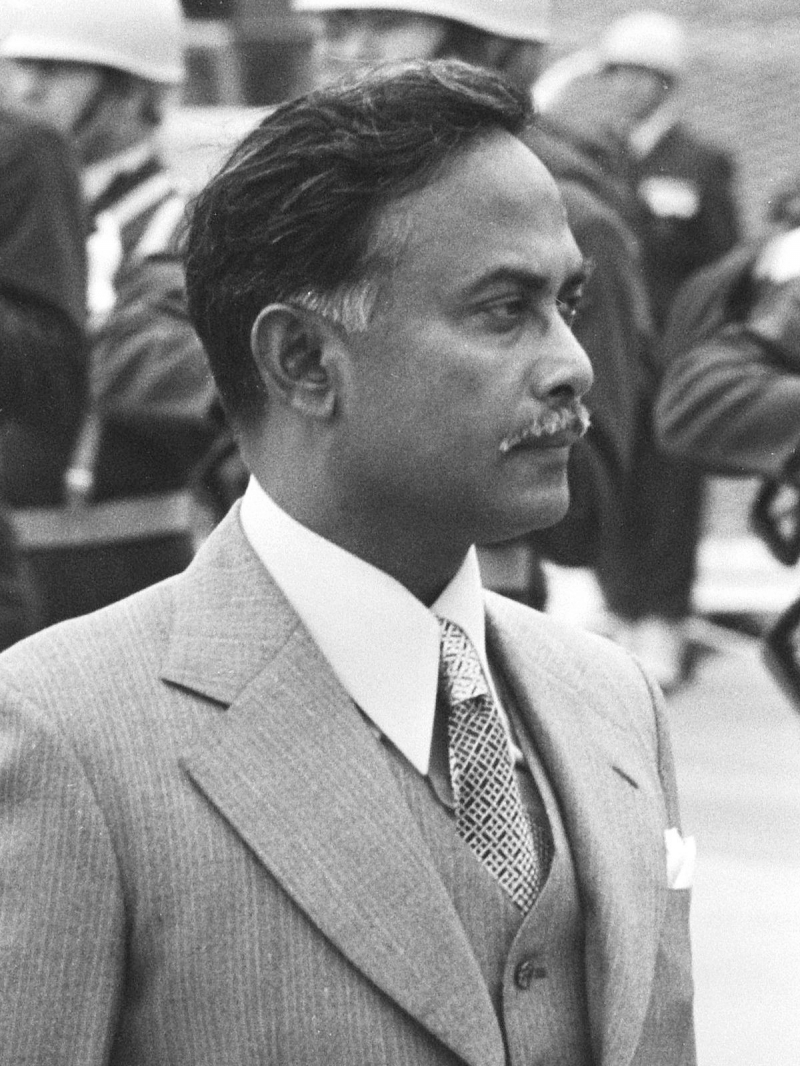
en.wikipedia.org 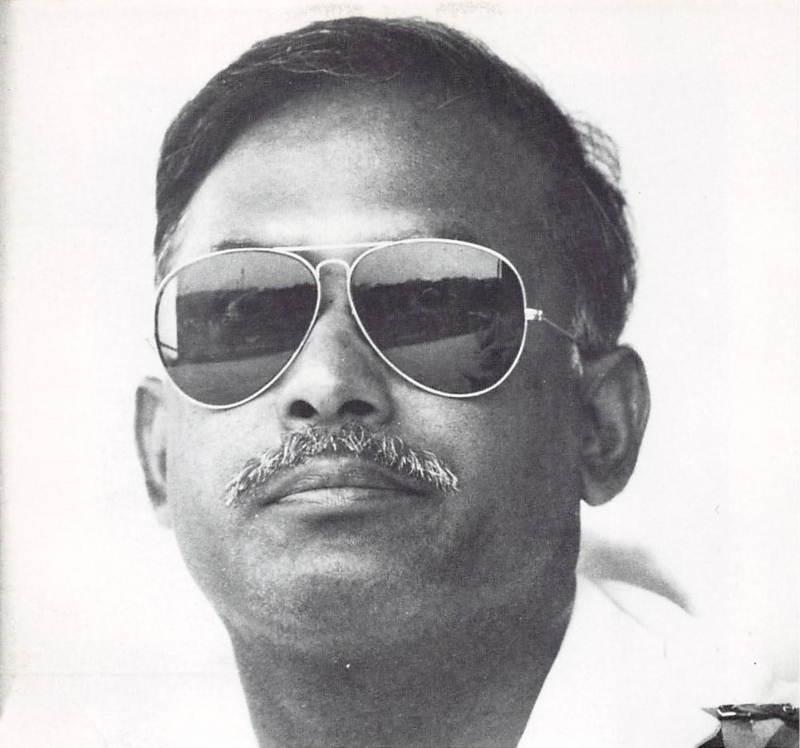
commons.wikimedia.org -
Humayun Ahmed (13 November 1948 - 19 July 2012) was a novelist, dramatist, screenwriter, filmmaker, songwriter, scholar, and professor from Bangladesh. His breakthrough novel, Nondito Noroke, was published in 1972. He authored over 200 fiction and nonfiction books, many of which became bestsellers in Bangladesh. During the 1990s and 2000s, his books were the best-sellers at the Ekushey Book Fair. For his contributions to Bengali literature, he received the Bangla Academy Literary Award in 1981 and the Ekushey Padak in 1994.
Ahmed rose to prominence as a filmmaker in the early 1990s. He went on to direct eight films, all of which were based on his own novels. He won six Bangladesh National Film Awards in various categories for his work on the films Daruchini Dip, Aguner Poroshmoni, and Ghetuputra Komola. Nuhash Chalachitra is his own production company.
One of the foundational works of modern Bengali literature. His works are distinguished by nonviolence, realistic storylines, family drama, and humor. Critics still regard his works such as Kothao Keu Nei, Aaj Robibar, and Srabon Megher Din as masterpieces. For 15 years (1990-2005), he was one of the most influential writers in Bangladesh history, writing the majority of popular soap operas. His works continue to inspire many Bangladeshi filmmakers. His films Shyamol Chhaya and Ghetuputra Komola were gradually nominated for Best Foreign Language Film at the 78th and 85th Academy Awards, respectively.
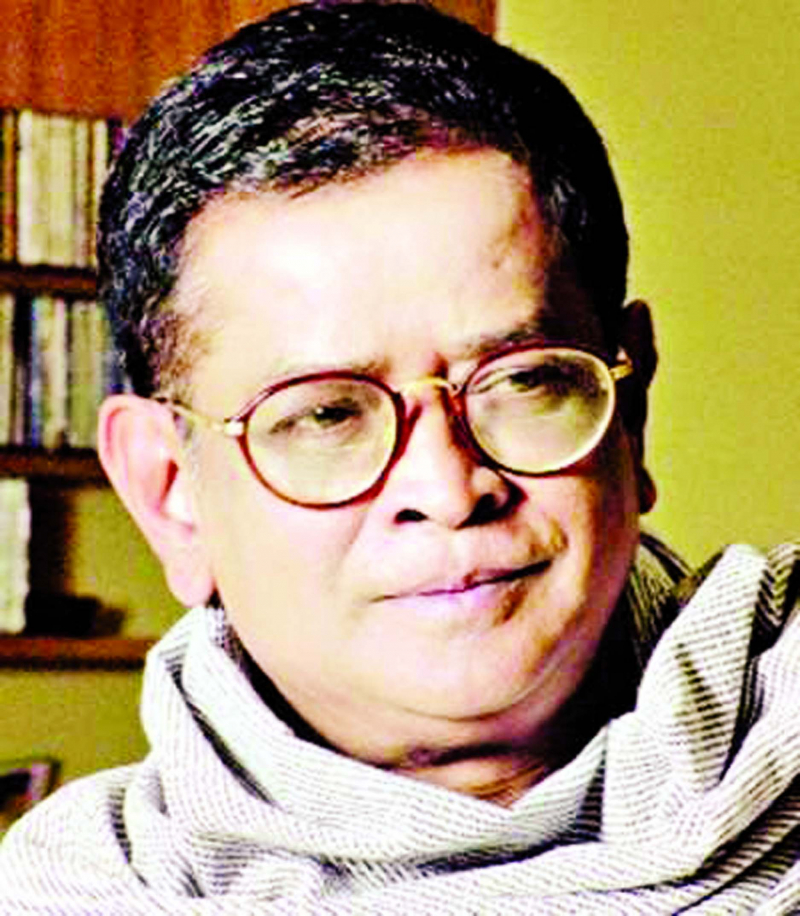
thedailynewnation.com 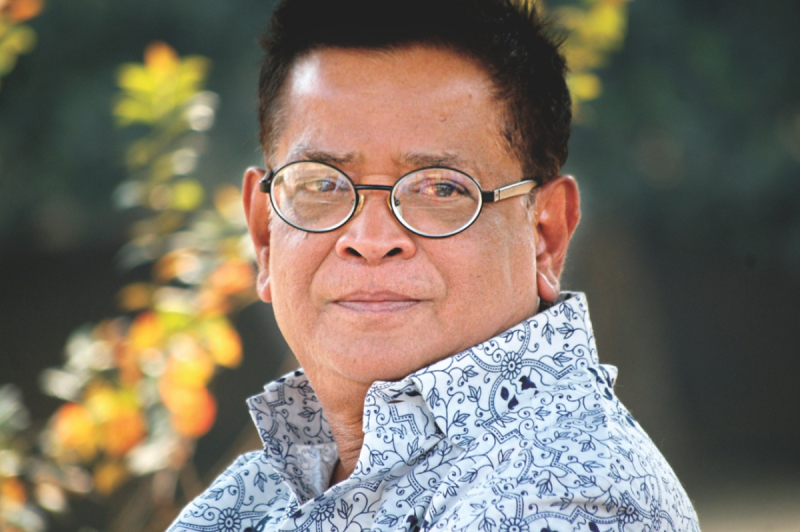
thedailynewnation.com -
Lalon (1772 - 17 October 1890), was a prominent Bengali spiritual leader, philosopher, Baul saint, mystic poet, and social reformer. He was also known as Lalon Sain, Lalon Fakir, Guruji, Sainji, and Fakir, Shah. As a Bengali cultural icon, he influenced and inspired many philosophers, poets, and social thinkers, including Rabindranath Tagore, Kazi Nazrul Islam, and Allen Ginsberg. Lalon's philosophy of humanity rejects all caste, class, and creed distinctions and opposes theological conflicts and racism. It rejects all worldly concerns in pursuit of the soul, and it embodied the socially transformative role of sub-continental Bhakti and Sufism.
Lalon established the Lalon Akhra Institute in Cheuriya, about 2 kilometers (1.2 miles) from the Kushtia railway station. His followers are mostly found in Bangladesh and West Bengal. Every year on the anniversary of his death, thousands of his disciples and followers gather at Lalon Akhra for three days of celebration and discussion of his songs and philosophy.
A mausoleum and research center were built on the site of his shrine in Kushtia, Bangladesh, in 1963. Thousands of people visit the shrine (known in Bengali as an Akhra) twice a year, during Dol Purnima in the month of Falgun (February to March) and on the anniversary of his death in October. People pay tribute during these three-day song melas, particularly Muslim fakirs and Bauls. Farida Parveen and Anusheh Anadil, two modern Baul singers, are internationally known for singing Lalon songs. M One of the fundamental works is Shahinoor Rahman's thesis Bengali poet Fakir Lalon Shah: Oral poetry and tradition in the social context of contemporary Bangladesh on his life philosophy.
In 2004, the Lalon Shah Bridge over the Padma River was named after him. Lalon was voted the 12th greatest Bengali of all time by the BBC in 2004. He also regarded as one of the most important historical figures in Bangladesh.
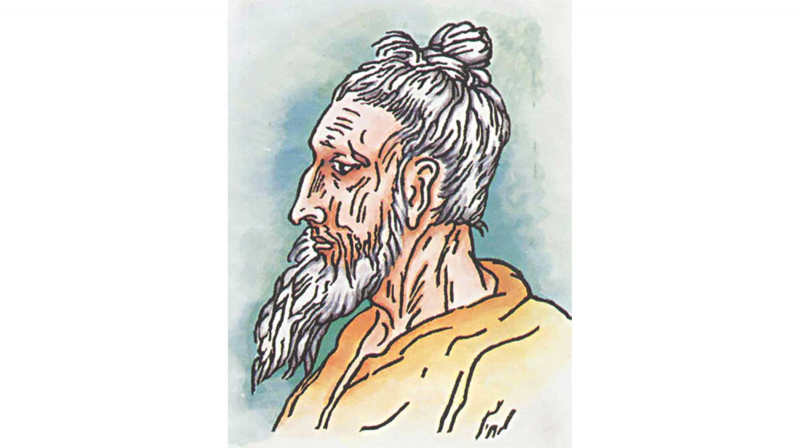
thedailystar.net 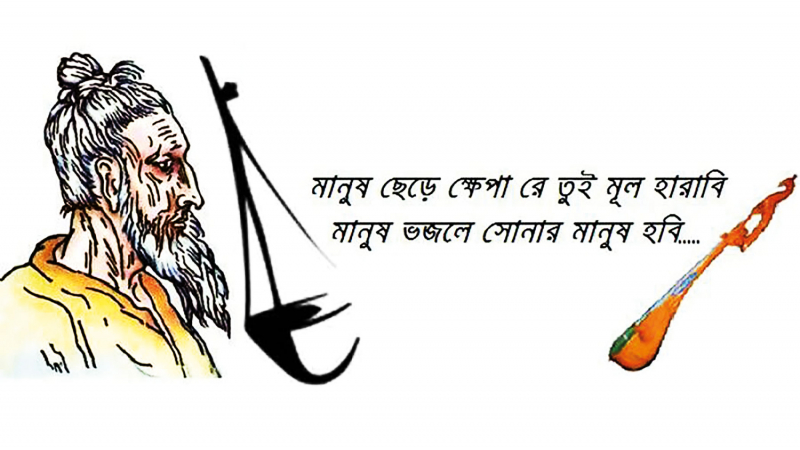
thedailystar.net








